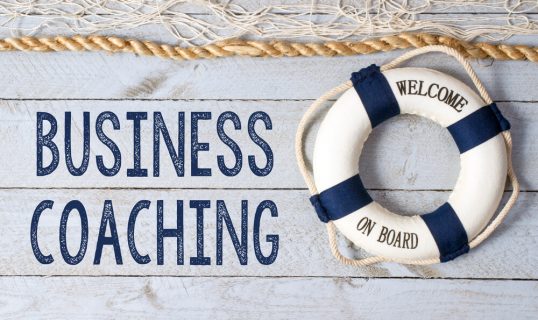Hiring a Business Coach or Consultant? Learn the Top “Must-Ask” Questions to Ensure They’re the Right Fit.
February 27, 2019

How to hire the right business coach or consultant.
By Maureen McCabe
Let’s start with the basics. Do you understand the difference between a business consultant who provides advice and a business coach who provides guidance? If you do, how will you decide which individual or firm is the best fit for you? The first step is to interview three professionals.
If you’re unsure of the key differences to help you decide which is right for you, check out our post. Or, perhaps it’s easier to get started by interviewing one coach and one consultant to understand their value and uniqueness.
Before an initial discovery session is scheduled, most firms require that you complete an intake form that helps them to discern if you are an ideal client or a tire kicker. During the session, anticipate questions about your business, your challenges, the approved budget, and the timeline for making a decision, before they talk about potential solutions. They will likely and politely end the conversation if you aren’t their ideal client.
Similarly, maximize your time, cut the conversation short if you don’t feel they will be the right fit. Our top interview questions are grouped into six areas and apply to consultants and coaches:
1. Ideal Client
- Who is your ideal client?
- Who is not?
- Describe two examples of clients who were difficult to work with and why they were challenging.
- What did you learn from these situations?
- Are we an ideal client? Probe to understand why you are or are not.
2. Previous Experience
By asking the following questions, you should have a good idea if they can deliver what you need:
- What experience do you have solving similar challenges in other organizations and industries?
- Referencing that you looked at their website and social media, ask for additional references and if they have any case studies.
TIP: Check out their online reviews on Facebook, Yelp, LinkedIn, and Yellow Pages.
3. Who Does What?
As you want to ensure that you (and your team) have the capacity and the skills to do the work which will be your responsibility, the following are critical expectation-setting questions.
- What are the roles and responsibilities for you and your team?
- What role do my team and I have to play?
- What is the time investment required by my team?
You need to be clear on the above before you go too far down the path with them. To avoid surprises, ensure this is well-documented in the Contract and Statement of Work when you get to that stage.
4. What Do You Recommend We Do?
They are experts; ask them to provide a couple of solutions. Sometimes they will need to co-create a unique solution for you based on your business requirements; other times, a standard solution will work. In the initial discussion, they may not be able to provide more than an overview of the work to be done.
When you are ready to move forward, request a detailed plan as part of the proposal.
5. The Big Three: Results, Success Criteria, Investment
You want to be sure that what you need and want will be completed based on your required timeline and budget. In the initial discussion, often only ranges are provided, and details will be part of further conversations and a proposal.
- What are the deliverables?
- How will the recommendations and plan meet my needs?
- What results can I expect to see as an outcome of working with you?
- How long will it take?
- What is my investment? Or be blunt. How much is it really going to cost me?
Sometimes your expectations can’t be delivered in the requested timeframe and within your budget. Ask how close they can provide what you need or if it’s possible to do the work in prioritized, defined stages. If they are not the right fit, maximize your time and curtail the conversation as you are interviewing other professionals.
In additional meetings, you may need to negotiate and discuss trade-offs between timing, the deliverables (realistically, how much of the project can they complete), and overall cost. If you can’t have all three items, choose the two highest priorities.
6. Sample Contract, NDA
- Ask for a sample contract to understand the terms under which they will work, in addition to payment terms, responsibilities, liabilities, insurance, etc.
- Request that they sign a non-disclosure agreement (NDA) to protect your Intellectual Property (IP). (Even if you don’t think you have any IP, you likely do.)
TIP: Be sure to review the contract to understand all the terms and conditions they have set out before you sign anything. We recommend you consult a lawyer and learn five tips on how to hire a lawyer.
Last words of advice: After the interviews, and before choosing someone to work with, ask yourself, “Would I enjoy working with this person?” because if you don’t get along, it won’t work.
In summary, whether you work with a business consultant or a business coach, consider the above considerations as you interview candidates to ensure you hire the person who’s a great fit with your team. The McCabe Marketing team provides marketing consulting services. To learn more:

Marketing Companies Toronto | Marketing Agency Toronto
- Marketing Services
- What We Do
- 10-hour Starter Package
- Marketing Strategy
- Marketing Plan
- Attract & Keep Customers
- Website Marketing
- Promotional Marketing & Ads
- Online Video Marketing
- Branding
- Marketing Materials
- Marketing Tools
- Why Choose Us
- Maureen McCabe, Small Business Marketing Consultant
- Small business marketing Toronto
- Help You Grow
- Video Gallery
- Marketing Fees
 Free Consultation
Free Consultation Marketing Check-up
Marketing Check-up Free Marketing Report
Free Marketing Report Free SEO Template
Free SEO Template Make An Inquiry
Make An Inquiry



